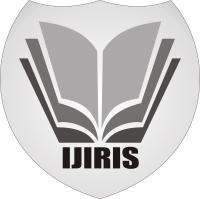Article,
THE ORGANIZATIONAL LEARNING AND ORGANIZATIONAL PERFORMANCE IN MOGADISHU-SOMALIA (A Case Study of Hormuud Telecom Company)
IJIRIS:: International Journal of Innovative Research in Information Security, Volume VII (Issue X): 99-103 (December 2020)1. Argyris, C., & Schon, D., (1978). Organizational Learning: A Theory of Action Perspective, Addison-Wesley, Reading, MA. 2. Argyris, C., Putman, R., and McLain Smith, D., (1985). Action Science, Concepts, Methods, and Skills for Research and Intervention, San Francisco, Jossey Bass 3. Bapuji, H., and Crossan, M. (2004). From Raising Questions to Providing Answers: Reviewing Organizational Learning Research, Management Learning, Vol. 35, No.4, PP. 397-417. 4. Bhattacherjee, A. (2012). Social Science Research: Principles, Methods, and Practices (2nd ed.). Textbooks Collection. Book 3. http://scholarcommons.usf.edu/oa_textbooks/3 5. C. Mausolff., (2004). Learning from feedback in performance measurement systems. Public Performance and Management Review, 28: 9-29 4. 6. C.M. Graham and F.M. Nafukho. (2007). Culture, organizational learning, and selected employee background variables in small size business enterprises. Journal of European Industrial Training, 31:127-144 6. 7. Chiva, R., Grandío, A., & Alegre, J., (2010). Adaptive and Generative Learning: Implications from Complexity Theories, International Journal of Management Reviews, Vol. 12, No. 2, PP. 114-129. 8. De Geus, A.p. (1988). Planning as learning Harvard Business Review,66(2),70-74. 9. Dimovski, V., (1994). Organizational Learning and Competitive Advantage, Ph.D. Thesis, Cleveland, Ohio 10. Farago, J., and Skyrme, D., (1995). The Learning Organization, (On-line), Available at http://www.skyrme.com/insight/3lrnorg.htm 11. Farago, J., and Skyrme, D., (1995). The Learning Organization, (On-line), Available at http://www.skyrme.com/insight/3lrnorg.htm. fifth edition (5th ed.). Edinburgh Gate, Harlow, Pearson Education Limited. 12. Finger, M., & Brand, S., (1999). The Concept of The Learning Organization, Applied To The Transformation of The Public Sector, In M. Easterby-Smith, L. Araujo and J. Burgoyne, Organizational Learning and The Learning Organization, London: Sage, P.2..
DOI: https://doi.org/10.26562/ijiris.2020.v0710.001
Abstract
The main purpose of the study is the investigate and explain the organizational learning and organizational performance in Hormuud Telecom, Mogadishu, Somalia. And its specific objectives were to determine the contribution of organizational learning to performance improvement within Hormuud Telecom Mogadishu, Somalia, to determine the factors affecting the performance of Hormuud Telecom Mogadishu, Somalia and to establish the relationship between organizational learning and organizational performance in Hormuud Telecom Mogadishu, Somalia. The research design in this study was used as a descriptive design and quantitative approach. The study population was 170 employees who work in Hormuud Telecom. The sampling procedure was sample random sampling and the research instrument was a structured questionnaire. The statistical tools were aligned with the objective of the research. For this purpose, frequency tables and percentages and were presented. The findings of the study revealed most of the respondents were given the scales were divided into dimensions by factor analysis. Further analysis continued with the dimensions obtained. Also, the reliability values of the obtained dimensions were examined. The Cronbach Alpha value of the performance scale was found to be 0.752. This value is reliable for research. The value calculated for the organizational learning scale is 0.776 and reliable. The Cronbach alpha values calculated for the sub-dimensions of the organizational scale are above 0.700 as seen in the table. This situation found us that the scale and its sub-dimensions are suitable for research and are of good reliability.
